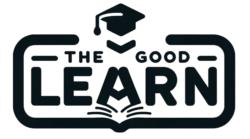Dyslexia is a well-recognized learning difficulty that affects how individuals process written words, even though their intelligence levels are typical. It’s estimated that dyslexia impacts around 2% to 5% of people, making it a substantial part of the learning disabilities community. Despite extensive research, the exact cause of dyslexia remains a mystery, and there is no permanent cure for this lifelong condition. However, dyslexia tutoring has proven to be an effective way to support those with dyslexia by employing personalized teaching methods that address their specific learning challenges.
Digital Tools and Resources for Support
The internet is a vast resource for those dealing with dyslexia. Special Ed Resource, for example, provides personalized online dyslexia tutoring tailored to individual needs. Beyond this, various platforms and communities are dedicated to supporting those with dyslexia. The International Dyslexia Association, for instance, offers a wealth of resources, including educational content, advocacy information, and local support group connections. Additionally, tech advancements have introduced dyslexia-friendly reading apps and software, making it easier for individuals to enjoy a customized reading experience. Utilizing these digital resources can significantly help in discovering effective strategies and support networks, empowering individuals to better manage their learning differences.
Why Early Detection of Dyslexia Matters
Recognizing dyslexia early is crucial due to its diverse symptoms. The condition has been identified as a congenital neurological disorder since the late 1800s through the work of researchers like Dejerine and Bastian. Over time, research has highlighted specific dyslexia subtypes, classified based on differences in auditory and visual perception and, occasionally, muscular issues that affect reading skills.
Challenges Encountered by Those with Dyslexia
Dyslexia mainly impacts how people interpret written text, often leading to confusion and frustration. People with dyslexia may struggle to recognize and understand letters and words, which is evident in children through mix-ups of similar-looking letters and numbers, delayed speech, and memory issues. As they grow, these challenges in reading, writing, and math can affect their academic and career paths.
Addressing the Challenges of Dyslexia
Recent studies indicate that specific reading interventions can notably ease the difficulties associated with dyslexia. Activities that involve rhyming, for instance, help young learners focus on phonemic awareness and the connection between sounds and spelling. Engaging with rhyming picture books and identifying rhyming words can provide significant benefits.
Hands-On Learning and Visual Supports
Incorporating hands-on methods, such as using magnetic letters and tracing letters in tactile materials like sand, can offer beneficial tactile learning experiences, enhancing letter and word recognition skills. In addition to kinesthetic strategies, crafting personalized visual aids for learning letters and providing opportunities to visualize them can be particularly helpful, especially for older students moving from recognizing letters to forming words.
Empowering Dyslexic Students to Succeed
Despite the ongoing challenges dyslexic individuals face, the right support can lead to remarkable academic success. Special Ed Resource offers a variety of services tailored to the unique needs of students with dyslexia. These include advocacy for accessing necessary accommodations, support for homeschooling families, customized online education programs, and expert consultations for dyslexia tutoring. With these resources, students with dyslexia can thrive academically and reach their full potential.

